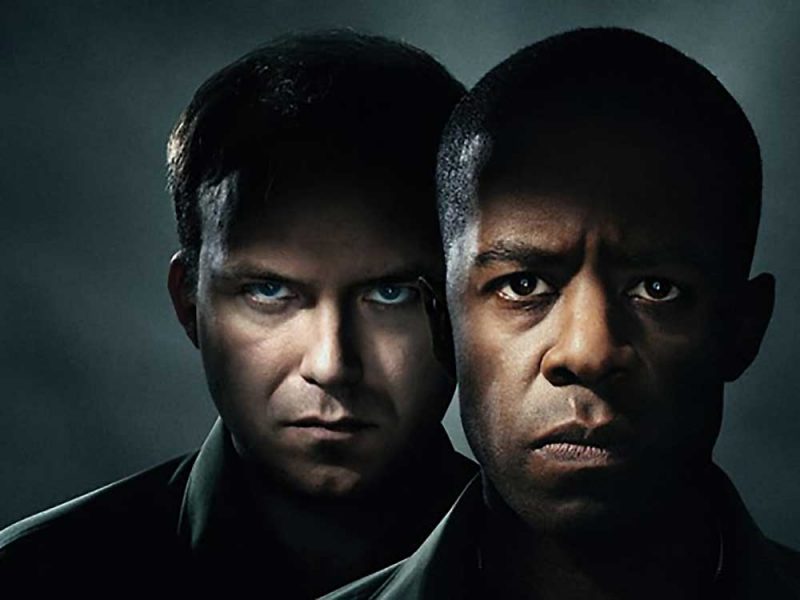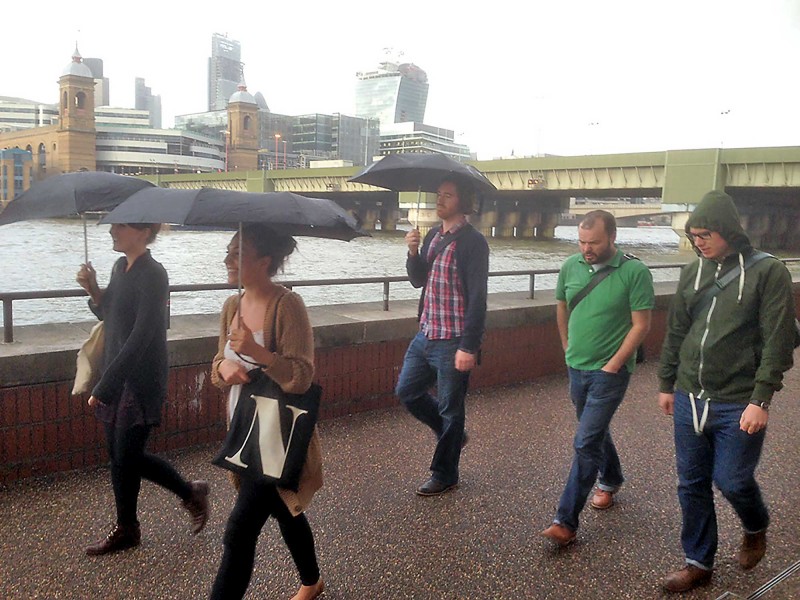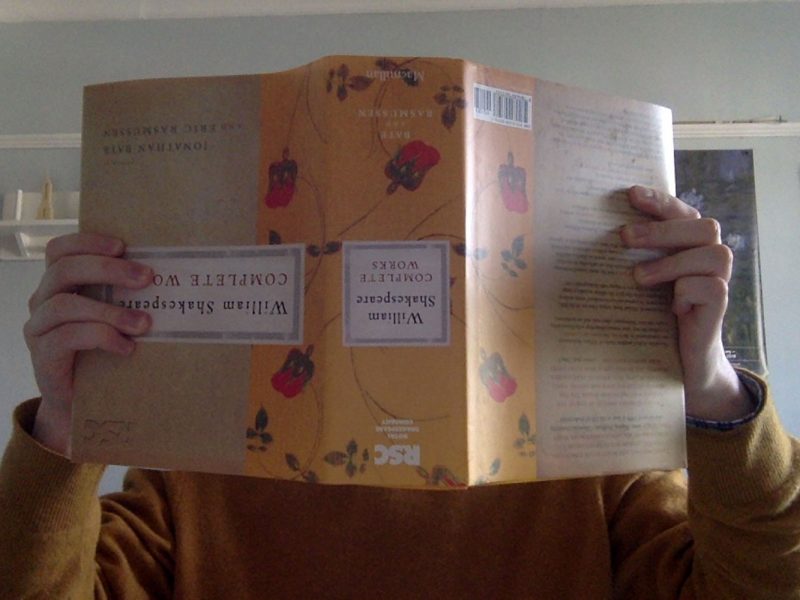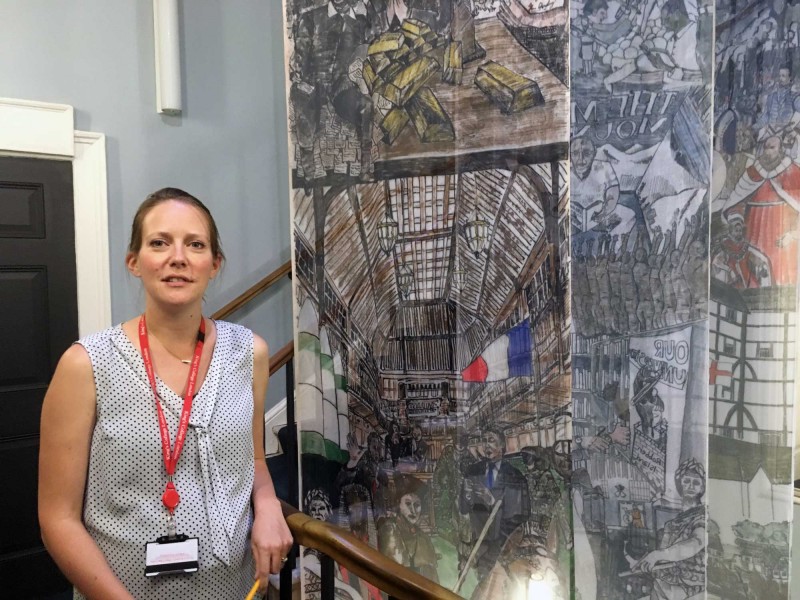I’ve not seen a production of Coriolanus before so I have little to compare it to but I’ve read about huge, sprawling productions lasting many hours with bloody, visceral battle scenes. I couldn’t imagine how Director, Josie Rourke, would bring this play to the intimate setting of Donmar Warehouse, in under three hours.
Coriolanus at Donmar Warehouse
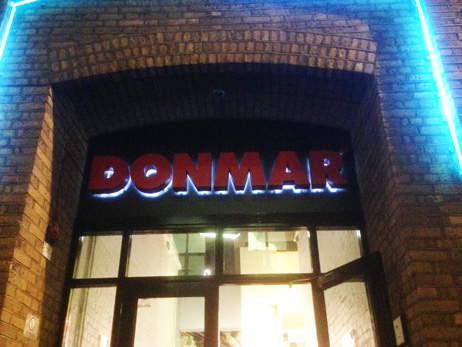
With its celebrity-casting and tiny capacity, this was one of the hottest tickets in town. I was lucky enough to pick up a ticket from their Front Row scheme, where seats are held back and sold for £10.
The publicity materials suggested a blood-soaked staging so I was more than a little cautious to be sitting in the front row. As I took my seat I was even more nervous to see that the knee-height stage had a drain running all round it.
The title character personifies the turmoil of transition between the state’s war-hardened rulers and its people (the plebs).
Before the lights dimmed, I took a quick look round the theatre, perhaps unsurprisingly for a play starring Tom Hiddleston, the audience was nearly all women. One man stood out, film director Guillermo del Toro was there, sitting next to Hollywood A-lister Jessica Chastain (she and Hiddleston star in del Toro’s forthcoming movie, Crimson Peak).
This production is fast moving with minimal staging (a row of chairs is used brilliantly to evoke shifting battle-lines). The action is set in the emerging Roman Empire. We are at the time where Rome has overthrown its monarchy in favour of an emerging democracy. The title character personifies the turmoil of transition between the state’s war-hardened rulers and its people (the plebs).
Rome is changing and the ruling classes are slow to see that change coming. Romans are becoming citizens rather than subjects, and skilled politicians, such as Menenius (deftly played by Mark Gatiss) are needed to manage that process.
Coriolanus (the title given to Hiddlestone’s character after his victory in Corioles) has lived his life on the battlefield, we hear that he’d fought against the deposed monarchs when he was 16. He dotes on his mother whose ambitions for her son are his eventual undoing.
Returning from battle, Coriolanus wants nothing more than to show kindness to those who have helped him, to rest, and to return to fight for the city he loves. We see Hiddleston showering, centre stage, shaking his hair free of enemy blood and wincing at the open-wounds he has suffered.
The city demands more from their hero. Pushed by his mother (who revels in her son’s injuries and battle-scars) he agrees to run for office. He’s an obvious choice for the Senate and easily wins their support. But he must also gain the popular vote of the people. Coriolanus doesn’t know how to play the political game, he cannot express false humility and refuses to display his wounds to the plebs.
Although he manages to gather enough votes, the tribunes (the representatives of the people in the Senate) quickly turn popular opinion against Coriolanus and his friends are unable to prevent the crowd from turning against him. Disgusted by their lack of support for him, a hero of the battlefield, he flees the city and seeks a pact with Rome’s most notorious enemy, Aufidius.
With their greatest warrior now on the outside, threatening to attack the city, the people deny their part in forcing him out. Envoys are sent to reason with Coriolanus. Eventually his mother and wife (played by Borgen star, Birgitte Hjort Sørensen) talk him into a truce, a political compromise. For Aufidius, this is a betrayal of his friendship (and love) and he kills Coriolanus before he can return to Rome.
Hiddleston is younger than many who’ve played this role but he’s entirely believable as a man out of time. Of course Coriolanus is actually a timeless character with countless modern resonances. He’s the unmentionable face of despicable acts, perpetrated in the name of peace whilst entirely at odds with the values he is fighting to protect.
This is a powerful production, helped enormously by the intimacy of the space. The intimacy is enhanced even further through an illuminated red square, painted on the stage, by a child in the opening scene, which boxes in the actors. The staging is physical with plenty of falling flames and other directorial devices bringing the scenes to life. Despite my proximity to the stage, I escaped a soaking. But I do feel sorry for the stage crew who have a lot of cleaning to do after each show.






